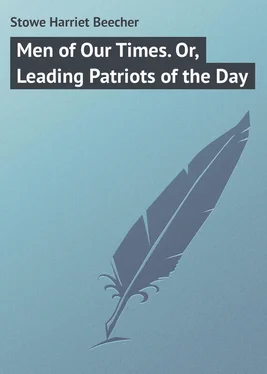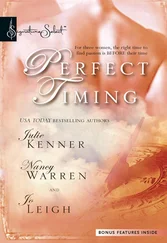Harriet Stowe - Men of Our Times. Or, Leading Patriots of the Day
Здесь есть возможность читать онлайн «Harriet Stowe - Men of Our Times. Or, Leading Patriots of the Day» — ознакомительный отрывок электронной книги совершенно бесплатно, а после прочтения отрывка купить полную версию. В некоторых случаях можно слушать аудио, скачать через торрент в формате fb2 и присутствует краткое содержание. ISBN: , Жанр: foreign_language, foreign_prose, на английском языке. Описание произведения, (предисловие) а так же отзывы посетителей доступны на портале библиотеки ЛибКат.
- Название:Men of Our Times. Or, Leading Patriots of the Day
- Автор:
- Жанр:
- Год:неизвестен
- ISBN:http://www.gutenberg.org/ebooks/46347
- Рейтинг книги:5 / 5. Голосов: 1
-
Избранное:Добавить в избранное
- Отзывы:
-
Ваша оценка:
- 100
- 1
- 2
- 3
- 4
- 5
Men of Our Times. Or, Leading Patriots of the Day: краткое содержание, описание и аннотация
Предлагаем к чтению аннотацию, описание, краткое содержание или предисловие (зависит от того, что написал сам автор книги «Men of Our Times. Or, Leading Patriots of the Day»). Если вы не нашли необходимую информацию о книге — напишите в комментариях, мы постараемся отыскать её.
Men of Our Times. Or, Leading Patriots of the Day — читать онлайн ознакомительный отрывок
Ниже представлен текст книги, разбитый по страницам. Система сохранения места последней прочитанной страницы, позволяет с удобством читать онлайн бесплатно книгу «Men of Our Times. Or, Leading Patriots of the Day», без необходимости каждый раз заново искать на чём Вы остановились. Поставьте закладку, и сможете в любой момент перейти на страницу, на которой закончили чтение.
Интервал:
Закладка:
He was quite as prompt and just in accepting unprofitable duty as in declining its profitable opposite. During all the early part of his legal practice in Springfield, it was considered an unpopular and politically dangerous business for a lawyer to defend any fugitive slave on trial for surrender to the South, and even the brave Col. Baker, in those days also practicing there, on one occasion directly refused to defend such a case, saying that as a political man he could not afford it. But the luckless applicant, having consulted with an abolitionist friend, went next to Lincoln, and got him. " He's not afraid of an unpopular case," said the friend; "when I go for a lawyer to defend an arrested fugitive slave, other lawyers will refuse me; but if Mr. Lincoln is at home, he will always take up my case."
On a few occasions after having even entered into the trial of a case, Mr. Lincoln would find that, as sometimes happens, he had been deceived by his own client, and that he really had not the right on his side. When this was the case, he could as it were be seen to wilt at once, and whatever further he might do in the case was only mechanical. In such a case, having an associate, and having refused to argue it, the associate argued the case and won it , and then offered to divide with Mr. Lincoln the fee of $900; but Lincoln would not take a cent. Once in defending a man sued for delivering lambs instead of sheep, the testimony clearly showed that such delivery had been made. Instead of trying to confuse the witnesses or becloud the evidence, Mr. Lincoln ascertained how many such lambs had been delivered, and quietly told the jury that they must give a verdict against his client. He simply cautioned them to be just in fixing the damages. When he had recovered a verdict against a railroad company, and a certain offset against his client was to be deducted, he interrupted the final decision just in time to have the offset made larger by a certain amount which he had just found out ought to be added to it. His careful and primitive scrupulousness was just as marked in dealing with any associates in a case. When he received a joint fee his invariable custom was to divide it properly, and tie up in a separate parcel each associate's part of the very money received , duly labelled and directed.
In 1841 Mr. Lincoln argued before the Supreme Court of Illinois, the case of Nance, a negro girl, who had been sold within the state. A note had been given in payment for her, and the suit was brought to recover upon this note. Mr. Lincoln, defending, proved that Nance was free, and that thus nothing had been sold; so that the note was void. The Court below had sustained the note, but the Supreme Court, in accordance with Mr. Lincoln's argument, reversed this judgment. The decision made Nance free, and put a stop to sales of human beings in Illinois.
Another remarkable case in which he was engaged, was, the defence of young Armstrong from a charge of murder. This Armstrong was the son of a man who had befriended and employed Mr. Lincoln in youth, and the present charge was, that he had killed a certain person who had unquestionably died from injuries received in a camp-meeting riot where young Armstrong was present. The father was dead, and the mother aged and poor; a chain of apparently perfectly conclusive circumstantial evidence had been forged, which had convinced the community of Armstrong's guilt; indeed, had he not been safely secured in a strong jail he would have been lynched. Neither the youth nor his old mother had any money. The people and the newspapers were furious against the prisoner; and his fate appeared absolutely certain even to himself, when Mr. Lincoln, hearing of the matter in some way, volunteered for the defence, and was gladly accepted. When the trial came on, the evidence for the prosecution was given, and constituted what appeared to the audience a perfectly conclusive proof of guilt. Lincoln cross-examined very lightly, only correcting up and ascertaining a few places and dates; and his own witnesses were only to show comparatively good previous character for the prisoner.
The prosecutor, sure of his prey, made only a short and formal argument. Mr. Lincoln followed for the defence. He began slowly, calmly, carefully. He took hold of the heart of the evidence for the state – that of the chief witness. He pointed out first one discrepancy, and then another, and then another. He came at last to that part of the evidence where this principal witness had sworn positively that he had been enabled by the light of the moon to see the prisoner give the fatal blow with a slung shot; and taking up the almanac he showed that at the hour sworn to on the night sworn to the moon had not risen ; that the whole of this evidence was a perjury.
The audience, gradually stirred and changed in the temper of their minds by the previous series of skilfully displayed inconsistencies, rising from hate into sympathy, flamed suddenly up at this startling revelation, and the verdict of "not guilty" was almost visible in the faces of the jury. But this was not all. Turning upon the infamous man who had sought to swear away another's life, Mr. Lincoln, now fully kindled into his peculiarly slow but intensely fiery wrath, held him up to the view of court and jury and audience, in such a horrid picture of guilt and shame that the miserable fellow, stunned and confounded, actually fled from the face of the incensed lawyer out of the court room. And in conclusion, Mr. Lincoln appealed to the jury to lay aside any temporary prejudices, and to do simple justice. And he referred to the motive of his own presence there, – to his gratitude for the kindness of the prisoner's father in past years, in a manner so affecting as to bring tears from many eyes. In less than half an hour the jury returned a verdict of not guilty, and the young man was set free, his life saved and his character restored.
When he went for the second time into public life, on the passage of the Nebraska Bill in 1854, he was becoming eminent in the difficult and lucrative department of patent law. But his fellow lawyers used to call his fees "ridiculously small." Indeed, he never took but one large fee, and that his friends insisted on his taking. This was $5,000 from the Illinois Central Railroad Company, one of the richest corporations in the country, and for very valuable services in a very important case. Once before this he had received what he thought a large fee, and he made a good use of it. The sum was five hundred dollars, and a friend who called to see him the next morning, found him counting it over and over, and piling it up on the table to look at. "Look here," he said, "see what a heap of money I've got from the – case! Did you ever see anything like it! Why, I never had so much money in my life before, put it all together!" Then he added, that if he could only get another $250 to put with it, he would at once buy a quarter-section of land, and settle it on his old step-mother. This was an odd use to make of a man's first important gains in money, and his friend, who at once loaned him the required additional amount, tried to make him give the land for the old lady's life only. But Lincoln insisted on his own plan, saying, "I shall do no such thing. It is a poor return at the best, for all the good woman's devotion and fidelity to me, and there isn't going to be any half-way work about it."
Mr. Lincoln was a great favorite at the bar, his good nature, his kindness, and his unfailing flow of stories, making him a most welcome guest on every circuit.
He never took technical advantages, but on the other hand often showed an adversary some error in matter of form, and suggested to him how to cure it. His forensic habits were excessively simple, but very effective. The most telling of all of them was to be in the right ; for when juries know that a lawyer habitually refuses to be on the wrong side, habitually breaks down if on that side, simply from consciousness of the fact, and habitually makes strong and clear arguments if on the right side, they are prepossessed in favor of that lawyer before he says a word. He did not make speeches to the jury, he talked with them; often in warm weather taking off his coat for coolness, selecting some intelligent looking juryman, reasoning with him until convinced, then taking another, and so on. He did not browbeat witnesses, but kept them comfortable and good humored. In short, Mr. Lincoln was decidedly and deservedly a powerful as well as a successful lawyer. He must have been of great professional powers to maintain himself, and rise to the leadership of the bar, with the competitors he had. Among these were Mr. Douglas, Secretary Browning, Senator Trumbull, Governor Yates, Judge Davis of the U. S. Supreme Court, Col. Baker, Gen. Hardin, Gov. Bissell, Gen. Shields, Senator Washburn, N. B. Judd, Gen. Logan, and others. He became recognized by his fellow-citizens as "the first lawyer in Illinois," and one of the judges on the bench described him as "the finest lawyer he ever knew," and another as "one of the ablest he had ever known."
Читать дальшеИнтервал:
Закладка:
Похожие книги на «Men of Our Times. Or, Leading Patriots of the Day»
Представляем Вашему вниманию похожие книги на «Men of Our Times. Or, Leading Patriots of the Day» списком для выбора. Мы отобрали схожую по названию и смыслу литературу в надежде предоставить читателям больше вариантов отыскать новые, интересные, ещё непрочитанные произведения.
Обсуждение, отзывы о книге «Men of Our Times. Or, Leading Patriots of the Day» и просто собственные мнения читателей. Оставьте ваши комментарии, напишите, что Вы думаете о произведении, его смысле или главных героях. Укажите что конкретно понравилось, а что нет, и почему Вы так считаете.












